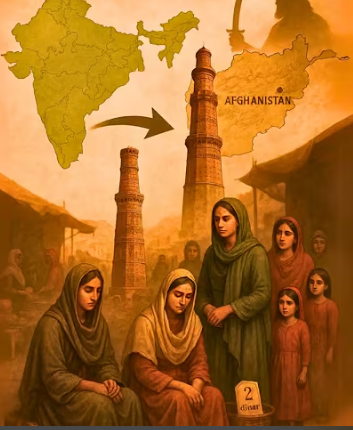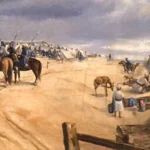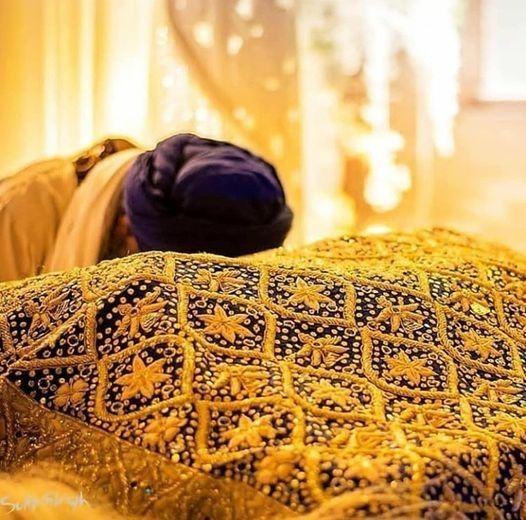In the heart of Ghazni, Afghanistan, stands a haunting minaret—not as a monument of faith, but as a symbol of shame. For centuries, this structure served as an auction block where Afghan raiders sold kidnapped Indian girls for the price of two dinars (less than a day’s wages). These women were enslaved, their dignity crushed under the weight of inhumanity.

The Darkest Chapter
- Human Markets: Girls taken from Punjab, Kashmir, and Sindh were paraded and sold like cattle at this minaret.
- Silence of the Powerful: While empires rose and fell, the trade in human lives continued unchecked—until the Khalsa arrived.
The Sikh Intervention
When no one else dared, the Sikhs refused to look away:
- Military Campaigns: Under Maharaja Ranjit Singh’s rule, Sikh forces launched expeditions to rescue captives and dismantle slave networks.
- Restoring Dignity: Freed women were brought home, rehabilitated, and given protection—a radical act in an era of apathy.
- Destroying the Trade: The Sikh Empire imposed harsh penalties on slavers, crushing their operations.
Why This Matters Today
The minaret still stands—not as a tribute, but as a warning:
- A Test of Conscience: Will we remember the victims, or let history repeat?
- Sikh Legacy: Where others saw “property,” the Khalsa saw sisters to be liberated.
“The price of a life was two dinars. The cost of ignoring it? Our humanity.”
⚔️ Sikh Resolve Then & Now
From battling slavery in Ghazni to running oxygen langars during COVID, the Khalsa’s mission remains:
“When the world fails, we rise.”
Sat Sri Akal. 🙏
(This minaret is a silent witness—to both cruelty and courage. Share this story so it’s never forgotten.)








